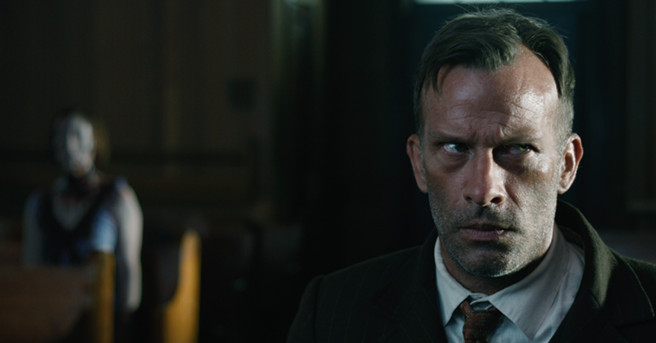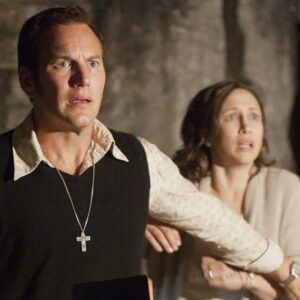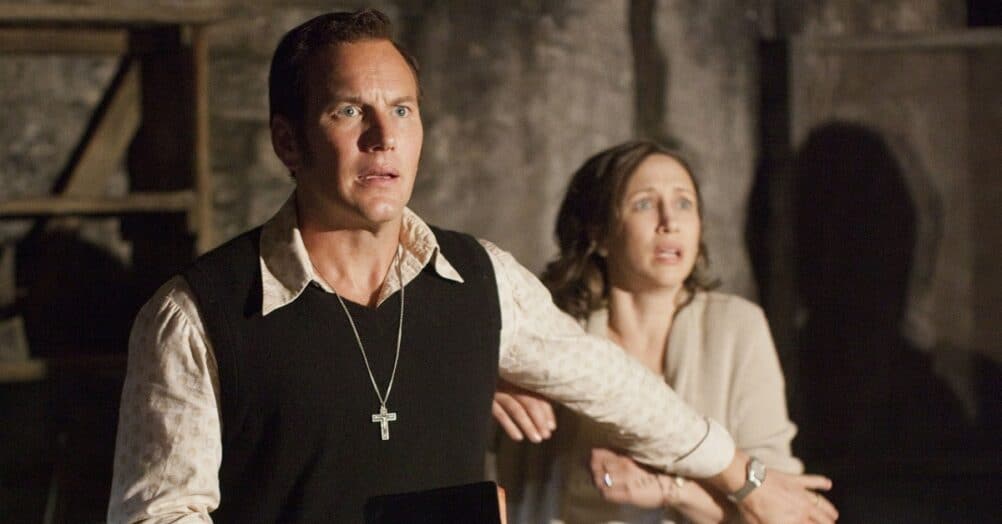Last Updated on August 2, 2021

PLOT: A Midwestern farmer conspires to kill his wife when she threatens to sell the farm and move to the big city.
REVIEW: In 1922, Thomas Jane sports a thick, sometimes indecipherable Nebraskan accent that would make Tom Hardy raise his eyebrows. It’s a full-on marble-mouthed performance, where every line is draaaawn ouuuut, and with a plethora of folksy sayings and similes the character Jane inhabits might as well as been played by Jeff Bridges in one of his patented drawl-heavy turns.
I mention this not as a slight against Jane, however, because it’s a fully lived-in performance that dominates a movie that is a little low-key, a little slow, a little uneventful. Based on a novella by Stephen King, the tale is quite a simply-told character study of a man who is too proud to let go of his most prized possessions, so much so that he’s willing to commit an evil act in order to allow his family name lives on. Not a movie overflowing with the kinds of ghouls and frights you might expect from a King story (although it does have a few of those), 1922 is more of a deliberately-paced, Midwestern take on “The Tell-Tale Heart.” If you can dig that (as King would say), then this one’s for you.

Jane plays Wilfred James, a farmer cutting out a meager existence in Nebraska with his wife Arlette (Molly Parker) and son Henry (Dylan Schmid). The family isn’t doing very well and Arlette is getting mighty sick of wasting away in the middle of nowhere. The land, which is not inconsiderable and is co-owned by husband and wife, can be bought for a decent price, something Arlette brings up at various intervals. Wilfred scoffs at the idea of giving it up, and is even further perturbed by the idea of moving to the city (“Only fools live in the city”). When Arlette’s persistence turns to talks of divorce and threats of taking his son away from him, Wilfred’s thoughts go bloody places.
It gives not much away to say that Wilfred plans on killing his wife, but what is majorly troubling are his machinations to involve his son. Acting as a soft-spoken devil on the shoulder, Wilf slowly but surely convinces the young man to be his accomplice. After the deed is gruesomely committed, Wilf and Henry callously toss the body down the well and move on with their lives. Naturally, it isn’t long before they’re haunted – figuratively and maybe literally – by the darkness of their sin.
I very much enjoyed King’s eerie novella when I read it many years ago, so Zak Hilditch’s very faithful adaptation more or less pleased me. It is frequently an uneventful story, more interested in the placid yet simmering aftermath of Wilf’s crime than any true supernatural goings-on or “boo” scares. Not exactly a horror tale, it’s more of a brooding drama with flecks of nastiness scattered throughout. The sinister atmosphere conjured by Hilditch (via King) is compelling for a patient viewer, however, and if you’re predisposed to enjoying movies based on King books then there is a very decent chance you’ll be caught up in 1922. And if it’s horror movie tropes you’re looking for, it does boast some gripping visuals of Arlette’s rotting corpse as she plagues Wilf (the first time we see it is quite disturbing), not to mention an army of rats that seem to be dredged up from the very act of murder itself. The period detail and isolated setting add to the chills.
That said, your overall opinion of the movie will likely come down to where you stand on Jane’s performance. I am of the opinion that it’s quite solid, even if that aforementioned accent is a bit over-the-top at times and threatens to push things into being unintentionally ham-handed. Jane is clearly committed to the part, however, and for all the world looks like a troubled man with a scarred soul prepared for an already pitiful life to become irrevocably doomed. One can’t deny it’s an engrossing and vivid piece of acting.




















Follow the JOBLO MOVIE NETWORK
Follow us on YOUTUBE
Follow ARROW IN THE HEAD
Follow AITH on YOUTUBE